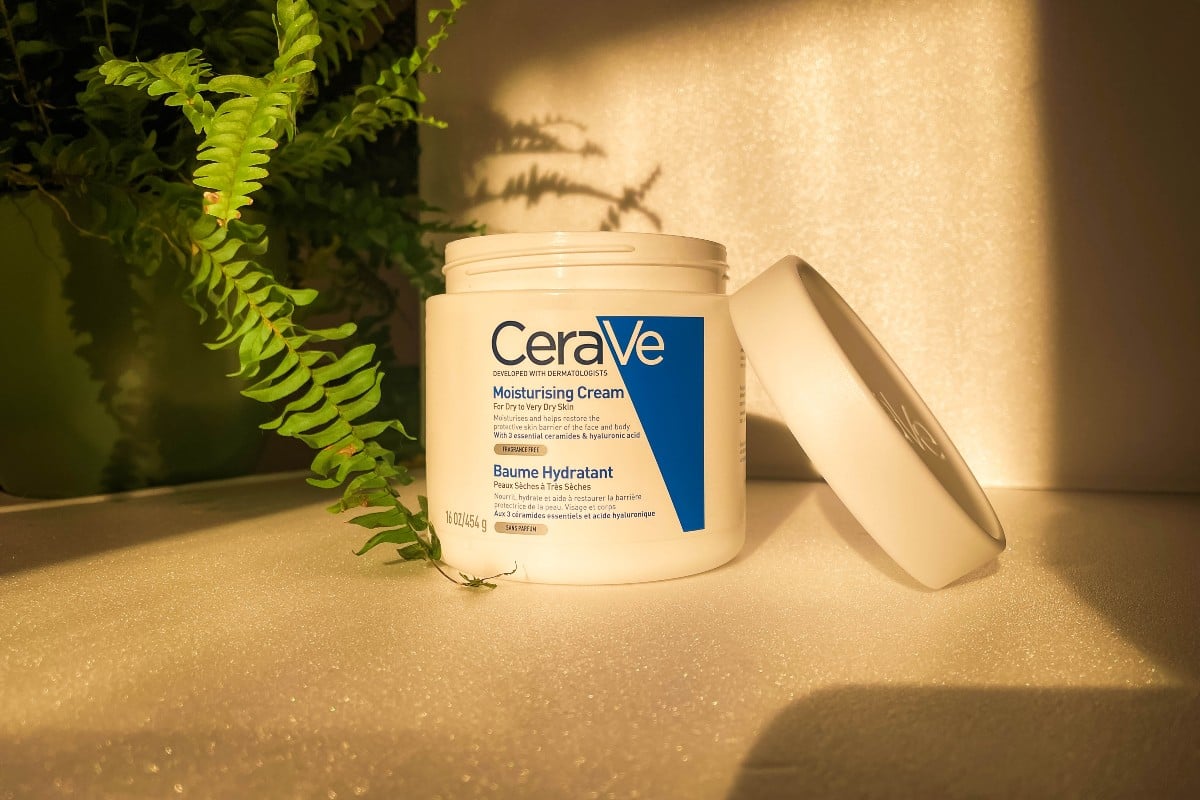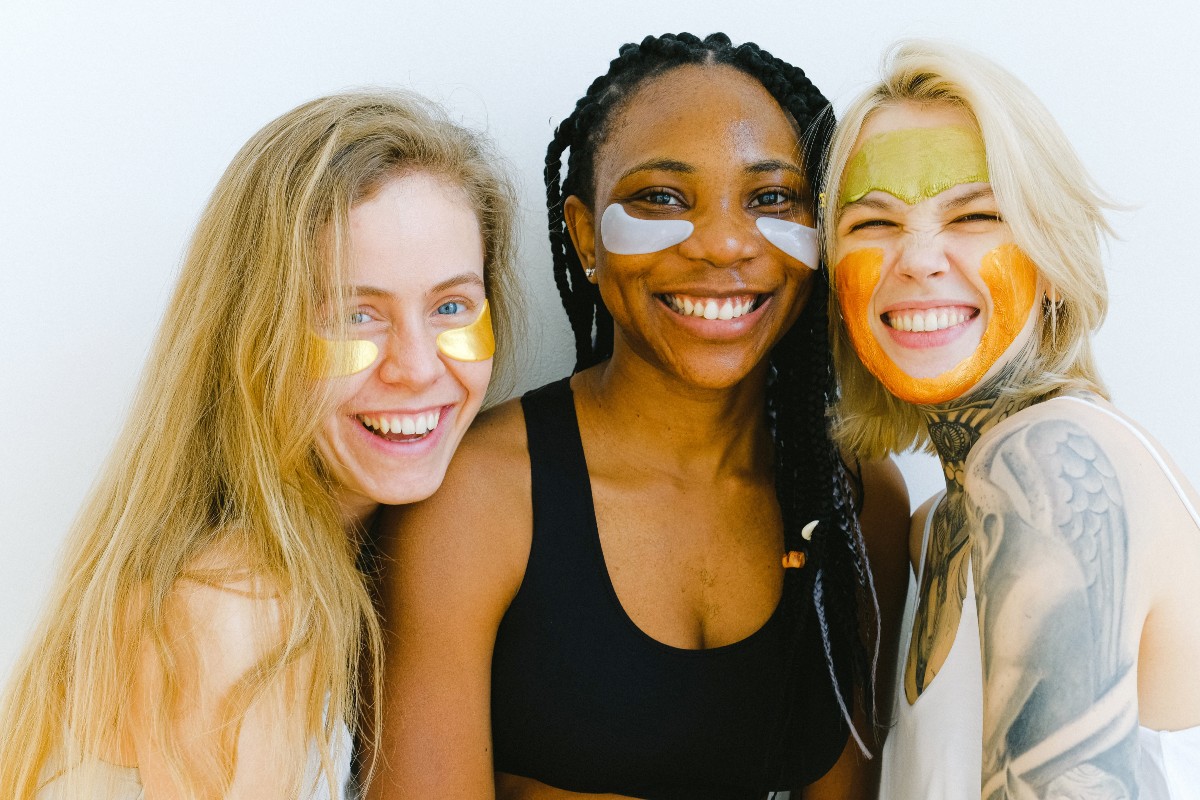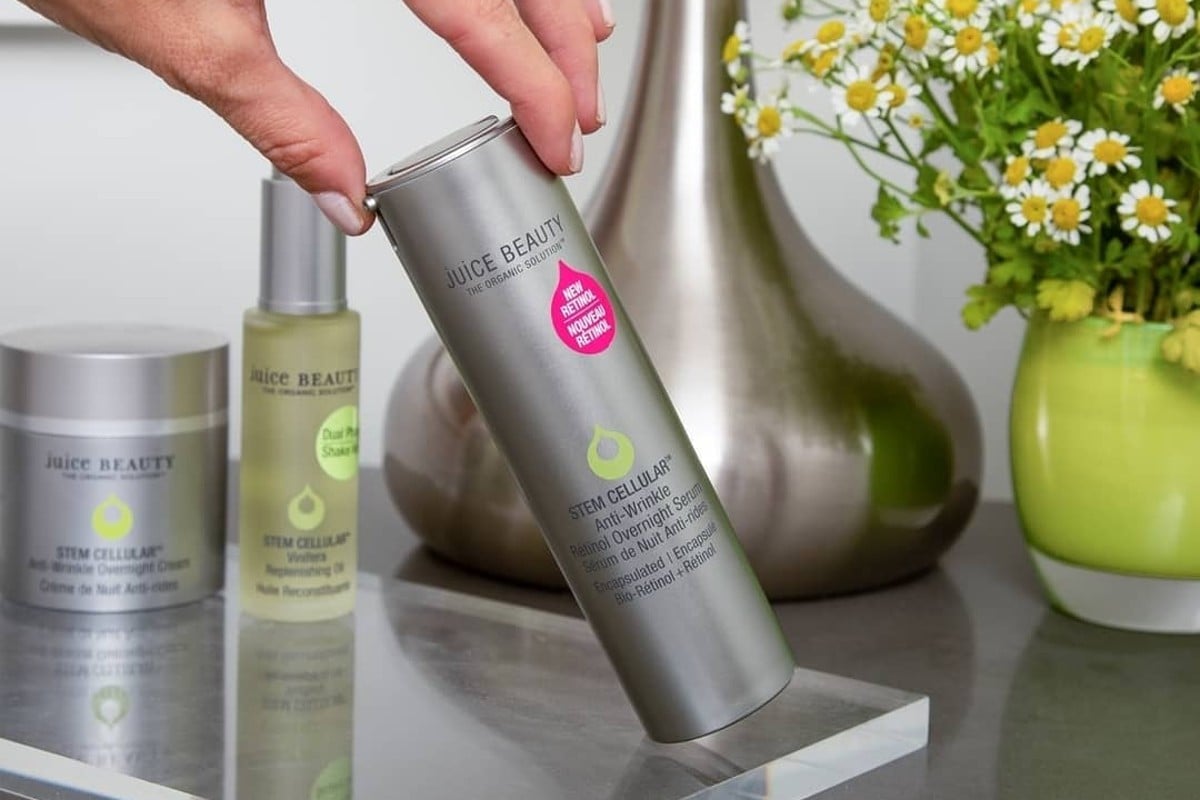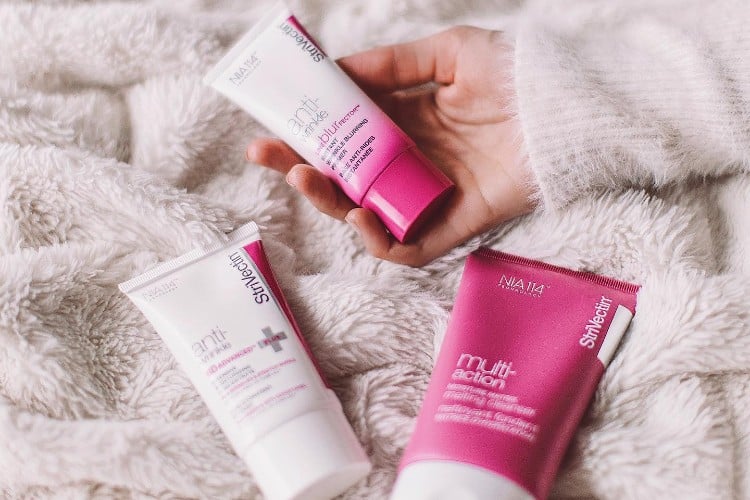You can spend hundreds on skincare but if you’re not addressing what’s happening beneath the surface, you’re treating symptoms, not causes. Aging isn’t just fine lines — it’s collagen breakdown, chronic low-grade inflammation, oxidative stress, and nutrient depletion. That all happens internally, long before it shows up on your face. If you’re serious about aging well, you need to go beyond your bathroom shelf. The answer? Anti-aging supplements. These are what help your skin age more gracefully by targeting the biological processes that drive aging-the ones topical products can’t reach.
How do these supplements work to combat aging?
Your body doesn’t stop producing collagen, antioxidants, or repairing tissue because it forgot how. It stops because it’s running a deficit. As you age, metabolic efficiency drops. Your cells require more energy and more resources to perform the same tasks, but your body absorbs and synthesizes less. The result? Slower tissue repair, weaker structural proteins, reduced cellular turnover, and an immune system that’s quicker to inflame and slower to recover.
This is where anti-aging supplements can help. They don’t reverse aging, but they help fill the biological gaps. By supplying the raw materials your body no longer produces or absorbs in the same quantities, they give your cells a fighting chance to keep up with damage control. That means maintaining collagen synthesis so skin stays firm longer, supporting antioxidant activity to buffer oxidative stress, and fueling the repair processes that protect everything from your skin barrier to your gut lining. Aging happens when those systems fall behind. Supplements help them hold the line.
Anti-aging supplements we recommend
JSHealth Vitality X + Collagen Powder
JSHealth’s Vitality X + Collagen Powder isn’t just another “glow” supplement wrapped in pretty branding — it’s a genuinely well-engineered formula that tackles aging where it starts: inside your cells. The 3g of hydrolysed marine collagen is the foundation of this formula, and it matters. Collagen is what gives your skin its structure, its firmness. As you age, your body makes less of it, and what you do have breaks down faster. This powder feeds your system with ready-to-absorb collagen peptides, which your body can actually use to rebuild that internal framework.
The formula is also made with 4mg of astaxanthin — a seriously potent antioxidant that works against sun-induced damage. Add Vitamin C to boost collagen production, zinc for cell repair, and then amino acids like L-glutamine and glycine. Why those? Because L-glutamine plays a key role in maintaining the integrity of the gut health. You see, your gut and your skin are more connected than you’d think. If your gut is inflamed or out of balance, your skin shows it — dryness, breakouts, dullness. This formula seems to understand that, and it addresses it head-on.
The result? Not just smoother skin, but skin that’s actually functioning better. Less inflammation. More resilience. A supplement that treats skin aging as the complex biological process it is.
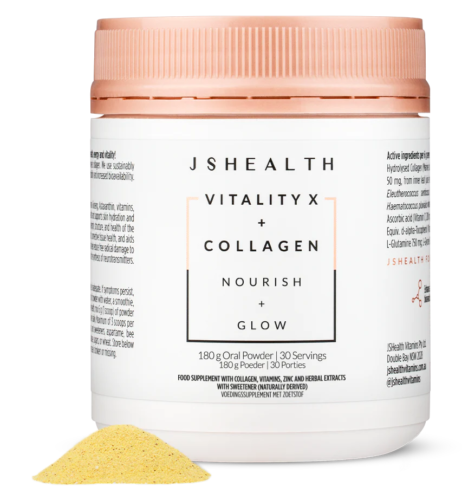
Youtheory Collagen Supplements
These supplements deliver what many people actually need: a large, consistent dose of hydrolyzed collagen (6,000mg per serving) plus vitamin C, which supports your body’s ability to build and stabilize collagen structures. That combination has research behind it, especially for improving skin elasticity and moisture retention. The formula is simple but effective, especially if you’re over 30 and your collagen production is already on the decline. It’s also worth noting that this is a mass-market supplement made in a facility that’s FDA-registered and GMP-certified — not because that makes it superior, but because it tells you the product is being made under consistent, regulated conditions.
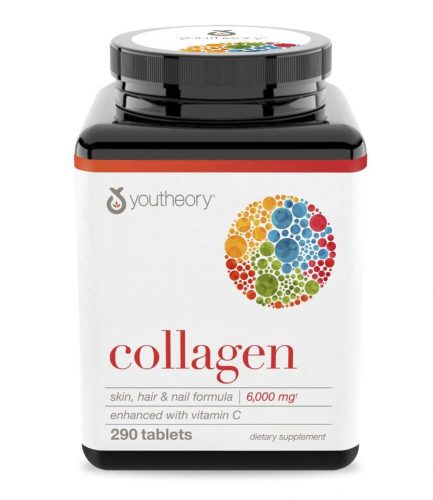
Thorne ResveraCel
Thorne ResveraCel supports healthy aging by helping the body restore NAD+ — a molecule that’s absolutely central to how your cells function, repair, and stay alive. NAD+ (short for nicotinamide adenine dinucleotide) is a coenzyme found in every single cell in your body. It acts like cellular currency — your body uses it to fuel essential processes like DNA repair, energy production, and cellular detox. Without enough NAD+, cells can’t maintain their function, and over time, that shortfall shows up as fatigue, slower recovery, cognitive decline, and yes — visible signs of aging.
The problem is, NAD+ levels naturally decline as you get older. By your 40s and 50s, they can drop by more than 50%. That decline is one of the reasons your cells lose their ability to bounce back from stress, repair genetic damage, or produce clean energy. ResveraCel works by supplying a precursor — nicotinamide riboside — that your body can convert into NAD+. The goal isn’t just to give you more energy; it’s to keep your cells functioning like they did when you were younger.
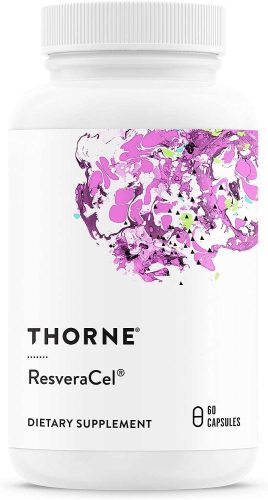
Dr. Emil Multi Collagen
Dr. Emil’s Multi Collagen is built around one clear idea: give your body all the major types of collagen it needs in one formula. It sources collagen from four different animal types — bovine, chicken, fish, and eggshell — which cover types I, II, III, V, and X. That’s more than most collagen supplements offer, and theoretically, it means better support for skin, joints, cartilage, and connective tissue. The science on multi-type collagen is still evolving, but the approach makes sense if you’re looking to support more than just your skin.
What actually sets this product apart isn’t just the variety of collagen — it’s the simplicity and quality of the formulation. No sugar, no fillers, no soy, gluten, or dairy. It’s non-GMO, keto and paleo-friendly, and includes BioPerine (black pepper extract), which may help improve absorption. It doesn’t try to do too much — there are no trendy adaptogens or under-dosed add-ons. Instead, it focuses on delivering collagen in a clean, digestible form that fits almost any diet or routine.
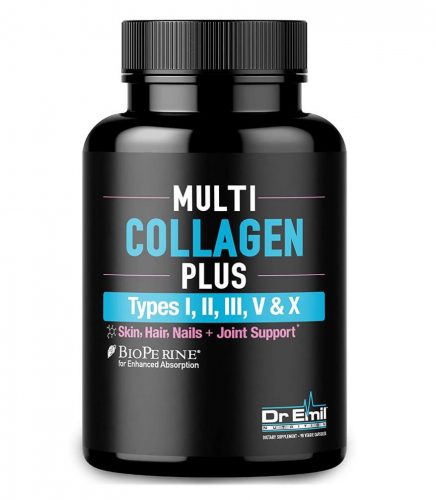
What are the most effective anti-aging supplements backed by science?
It’s no secret that the supplement industry is booming, and there seems to be a pill or potion for just about everything these days. While most promise to do magic, only a few have actually been proven to have anti-aging benefits, and here we discuss all of them.
Collagen
Did you know “collagen” is derived from kolla, the Greek word for glue? Collagen is literally the substance that binds cells together. It forms an extensive net-like framework throughout the body and imparts shape and structural strength to every skin tissue.
While bountiful in youth, the body’s collagen levels gradually decrease with age, leading to thinner, weaker, less resilient skin over time. More precisely, from age 25, your body loses collagen at a rate of 1.5% per annum. Consequently, by age 35, your body will have lost 15%, and by 45, 30%. This is when you start to notice a change in your skin’s elasticity and texture. So a proper collagen balance is crucial to maintain your skin structure integer. It’s well proven that taking collagen supplements improve several aspects of the skin, including hydration, elasticity, and roughness.[1]
Resveratrol
Resveratrol is a polyphenol produced by grapes that most people know from red wine. While it’s often seen as a typical antioxidant with UV protective properties, resveratrol is actually much more than that.
According to Dr. David Sinclair, biologist and professor of genetics at Harvard Medical School, resveratrol can mimic the effects of the sirtuin gene, which are proteins that help repair DNA. Sirtuins are often referred to as “longevity genes” due to their ability to promote healthy aging and extend the lifespan of certain organisms. By mimicking their effects, resveratrol may help protect cells from damage and potentially slow the aging process.[5] For reference, Dr. David Sinclai is taking 0.5g of resveratrol every morning, mixed in with yogurt. To put this into perspective, this is equivalent to about 85 to 2,500 glasses of red wine.
Nicotinamide mononucleotide (NMN)
This hard-to-pronounce supplement is synthesized from vitamin B3. What’s special about it is that it’s a precursor of NAD+ (nicotinamide adenine dinucleotide), meaning it converts to NAD+ once absorbed by the body. NAD+ is like the conductor of an orchestra—it keeps all the cellular processes in your body in harmony and ensures they function optimally.
Similar to resveratrol, NAD+ is a cofactor for sirtuins that support DNA repair and energy metabolism.
“You can think of resveratrol as the accelerator pedal for the sirtuin genes, and NMN as the fuel,” says Dr. David Sinclai. That said, one of the reasons skin ages is because it loses NAD+. “By the time we’re 50, our NAD+ levels are about half what they were when we were 20,” says David, which leads to a series of age-related conditions. Supplements with NMN are a promising anti-aging solution because they help increase NAD+ levels in the body. Ideally, you should start taking about 300mg of NMN in your mid-30s/early-40s and increase the dosage to 1g as you reach your 50s.
Vitamin C
You’ll think that the body is capable of producing all the essential nutrients needed for optimal health. Well, it’s not. For example, it does not produce vitamin C on its own. It can’t store it either, so you must ensure your vitamin C intake every day, which is about 75-95mg. The safe upper limit, however, is 500mg, which has strong evidence to provide substantial benefits for the body when taken for 1 to 3 months.
Vitamin C is an essential supplement because it’s involved in several processes that influence how the skin ages, including collagen synthesis, wound healing, antioxidant function, immune system function, and the metabolism of certain amino acids and vitamins.[2]
Vitamin E
Vitamin E goes hand in hand with vitamin C to help the immune system fight off viruses and bacteria while acting as a potent antioxidant to protect cells from free radical damage.[3] You can get vitamin E from natural sources like grains, sunflower oil, nuts, oats, and other dairy products, or supplements that have been proven effective in improving the body’s stores of antioxidants and helping skin age healthily.
EGCG
EGCG, or Epigallocatechin gallate, is the most abundant catechin found in green tea. It might slow down the appearance of aging signs by restoring certain cell functions and acting on AMP protein—an enzyme that plays a role in cellular energy balance.[4] Moreover, EGCG functions as an antioxidant, protecting the skin from free radicals caused by sun damage and pollution and supporting proper cell growth. Taking supplements containing 200mg of EGCG, which is equivalent to 2-3 cups of green tea, is considered safe and effective in providing enough photoprotection.
Coenzyme Q10
Coenzyme Q10 is an essential antioxidant that the body produces and uses to support energy production. You can think of it as the fuel that keeps you going. However, as you get older, the body’s ability to synthesize enough CoQ10 decreases, which often leads to fatigue and other health issues. Supplements with coenzyme Q10 can increase the levels of this energy-boosting nutrient and protect your body from oxidative damage. They have also been shown to speed up the production of new collagen and elastin.
Probiotics
Did you know that when the gut is out of whack, it negatively influences your mood, skin health, and energy levels? Keeping your gut in good health plays a major role in how well the body ages and that’s where probiotic supplements come in beneficial. They have been shown to improve the gut microbiota, which in turn restores the skin’s pH, reduces the impact of oxidative stress, and supports the skin’s barrier function.[8]
Other important supplements
- Quercetin: Quercetin is a flavonoid with antioxidant activity that can offset free radical damage, stimulate cell renewal and protect proteins from degradation
- Curcumin: Curcumin, a polyphenol found in turmeric, has been shown to reduce inflammation and cellular stress, which are key contributors to skin aging.[6]
- Selenium: This mineral acts has a key role in the body’s antioxidant defense system, and it protects the body from photoaging and various forms of cancer, including skin cancer caused by UV damage.[7] You can add more selenium to your diet through seafood, eggs, and whole-grain cereals. It’s a promising supplement, for sure, but it needs more studies on humans.
What else do you need to know?
- Consider taking supplements in your mid-30s. Unless your doctor has told you otherwise, you don’t need them at younger ages.
- Supplements don’t replace a healthy diet and an active lifestyle.
- Drink plenty of water and get enough sleep.
- Use topical treatments like retinoids and take advantage of anti-aging devices like LED masks and radiofrequency machines.
- Consult with your doctor before starting a supplement regimen. It can help determine the appropriate dosage based on your specific condition, medical history, and current medications. It also guides how long you should take the supplements for optimal results.
Footnotes
Women’s Concepts uses reliable sources, including dermatologists’ insights, clinical trials, and scientific journals, to find accurate information and support all the facts shared in our articles. All statements and claims have clear and legit references. Read our editorial policy to learn more about our sources of information, our process of researching and fact-checking the content, and how our team strives to keep all articles updated, completed, and trustworthy.
- Bolke L, Schlippe G, Gerß J, Voss W. A Collagen Supplement Improves Skin Hydration, Elasticity, Roughness, and Density: Results of a Randomized, Placebo-Controlled, Blind Study. Nutrients. 2019 Oct 17;11(10):2494. doi: 10.3390/nu11102494. PMID: 31627309; PMCID: PMC6835901.
- Vitamin C, National Institutes of Health (NIH) Office of Dietary Supplements (ODS), March 26, 2021
- Vitamin E and Skin Health, Oregon State University, Micronutrient Information Center, February 2012.
- Chen D, Pamu S, Cui Q, Chan TH, Dou QP. Novel epigallocatechin gallate (EGCG) analogs activate AMP-activated protein kinase pathway and target cancer stem cells. Bioorg Med Chem. 2012 May 1;20(9):3031-7. doi: 10.1016/j.bmc.2012.03.002. Epub 2012 Mar 9. PMID: 22459208; PMCID: PMC3334407.
- Leis K, Pisanko K, Jundziłł A, Mazur E, Mêcińska-Jundziłł K, Witmanowski H. Resveratrol as a factor preventing skin aging and affecting its regeneration. Postepy Dermatol Alergol. 2022 Jun;39(3):439-445. doi: 10.5114/ada.2022.117547. Epub 2022 Jul 15. PMID: 35950117; PMCID: PMC9326919.
- Sikora E, Bielak-Zmijewska A, Mosieniak G, Piwocka K. The promise of slow down ageing may come from curcumin. Curr Pharm Des. 2010;16(7):884-92. doi: 10.2174/138161210790883507.
- Tinggi U. Selenium: its role as antioxidant in human health. Environ Health Prev Med. 2008 Mar;13(2):102-8. doi: 10.1007/s12199-007-0019-4. Epub 2008 Feb 28. PMID: 19568888; PMCID: PMC2698273.
- Sharma D, Kober MM, Bowe WP. Anti-Aging Effects of Probiotics. J Drugs Dermatol. 2016 Jan;15(1):9-12. PMID: 26741377.


